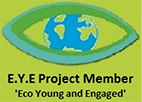Phonics, spelling and reading
Springfield Infant School places a great emphasis on children’s acquisition of basic skills, including phonics and reading skills. The school uses the Read Write Inc Phonic programme in Nursery, Reception and Year 1. By Year 2 most children are ready to begin the Read Write Inc Spelling programme. Both of these programmes match the 2014 National Curriculum.
Learning to read is one the most important things your child will learn at our school. We want your child to leave Springfield as a competent reader, but we also work to inspire a love of books that will help children develop their skills by reading for pleasure.
We start by teaching phonics to the children in Reception. (Phonics is also introduced to our Nursery children during the Summer term). This means that they learn how to ‘read’ the sounds in words and how those sounds can be written down. This is essential for reading, but it also helps children learn to spell well.
The children also practise reading (and spelling) what we call red words (tricky words), such as ‘once,’ ‘have,’ ‘said’ and ‘where’.
The teachers read to the children, too, so that the children get to know all sorts of stories, poetry and information books. They learn many more words this way and it helps their writing.
Read Write Inc is a systematic phonics program that teaches all children to read. For most children it lasts for two years if they start to learn to read in Reception. It teaches the sounds first, in a specific order, and then teaches children how to blend those sounds together in order to read real words.
Please follow this links below for more detailed information on Read Write Inc Phonics:
|
|
RWI Presentation
|
|
|
Letter Formation Ditties
|
|
|
Parents Reading Information
|
We will always let you know how well your child is doing. We use various ways to find out how the children are progressing with their reading. We use this information to decide what level books they should be reading and what phonics group they should be in. Your child will work with children who are at the same reading level as them and children will move to a different group if they are making faster progress than the others. Your child will have one-to-one support if we think he or she needs some extra help to keep up.
In the summer term, the government asks us to do a phonics check with all the Year 1 children. That gives us extra information about their progress. We will talk to you about how well your child has done, and especially if we have any worries at all.
By the end of Year 2, your child should be able to read aloud books that are at the right level for his or her age.
We provide regular workshops to explain how we teach reading. Please come and support your child.
We would very much like you to know how to help your child to sound out the letters in words and then to ‘push’ the sounds together to make a whole word. Try not to refer to the letters by their names. Help your child to focus on the sounds.
Sometimes your child might bring home a picture book that they know well. Please don’t say, ‘This is too easy.’ Instead, encourage your child to tell you the story aloud; ask them questions about things that happen or what they think about some of the characters in the story.
Reading to your child has a huge impact on your child’s success at school as well as encouraging them to develop a love of reading. Research has proved that reading for pleasure has a powerful impact on children’s cognitive development.
We know parents and carers are very busy people. But if you can find time to read to your child as much as possible, it helps them to learn about books and stories. They also learn new words and what they mean. Show that you are interested in reading yourself and talk about reading as a family.
It matters a lot if your child misses school. The way we teach children to read is very well organised, so even one missed lesson means that your child has not learnt something that they need to know to be a good reader.
We want children to learn to read, however long it takes us to teach them. We will find out very quickly if your child is finding reading difficult. First, we move children to a different group, so that we can make sure that they have learnt what they need to know. If they still struggle, we give them extra time with an adult, on their own. These adults are specially trained to support these children.
If we have any serious worries about your child’s reading, we will talk to you about this.
The way we teach reading is especially helpful for children who might be dyslexic. This is because we use a very well-organised program that has a strong focus on phonics. This is very important for children who find learning to read difficult. If you are worried about your child, please come and talk to us.
All children also have access to three library areas in school to choose books. They choose books from their class book boxes, their year group library, and they also have a weekly library session in the main School Library. These three books are brought home with reading diaries in each child’s book bag. Reception will start bringing home library books later in the year.
We expect each child to share their books at home each day and for this to be recorded in their reading diary. Please see below for our Home School Reading Policy for reading and phonics at Springfield Infant School.
|
|
Home School Reading Policy
|
Sackville Road, Worthing
West Sussex
BN14 8BQ, t: 01903 219243 e: office@springfieldschool.co.uk










